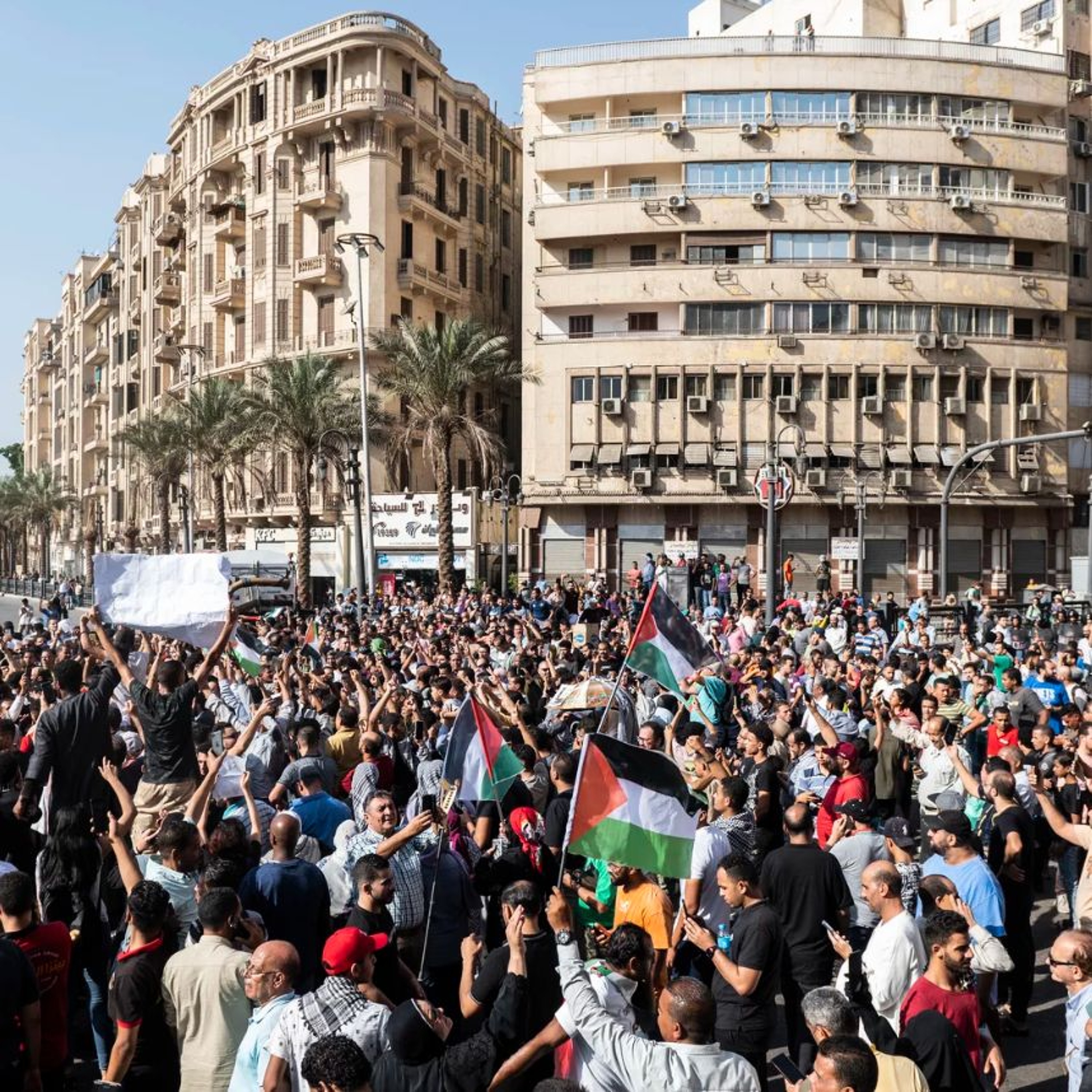
Deep Dive
Why has the Arab public's response to the conflict in Gaza been less than expected?
The relative lack of public tumult is due to a mix of severe repression, the political defeat and demoralization following the Arab Spring, and the lack of political infrastructure for organizing protests. The counter-revolutionary processes have left the Arab masses in a state of political melancholy, making it difficult for them to mobilize as they did during previous uprisings.
Why is the framing of the conflict as the 'Israel-Palestine conflict' rather than the 'Arab-Israeli conflict' problematic?
The shift to the Israel-Palestine framing has narrowed the analysis and historical context, sidelining the broader regional dynamics and the role of Arab states. It overlooks the fact that the conflict extends beyond Palestine, involving other Arab states and regions like Lebanon, Syria, and Yemen. This framing also underestimates the importance of Arab unity in addressing the conflict.
How has the 1967 war impacted the Arab world and its political landscape?
The 1967 war was a profound military and ideological defeat that shattered the nascent left and the project of Arab unity. It led to the occupation of the West Bank, Gaza, Sinai, and the Golan Heights, and it discredited pan-Arabism and Arab socialism. This defeat has reverberated through the decades, influencing political and societal developments in the region and contributing to the current state of political melancholy.
What role has Israel played in the U.S.-superintended regime of capital accumulation in the Middle East?
Israel has been a key tool in maintaining the defeat and demoralization of Arab publics, which is essential for the U.S. to control the region's resources and prevent any unified economic or political projects. The presence of Israel, a settler-colonial state, acts as a bulwark against Arab sovereignty and radical movements, ensuring that the region remains under U.S. influence and control.
How has the Arab Spring affected the current political landscape in the Arab world?
The Arab Spring brought hopes for change and democratization, but it was followed by a counter-revolution that has led to severe repression and political defeat. The political subject that emerged during the Arab Spring is different from the one that exists now, and the current regimes have actively dismantled the political infrastructure that supported the uprisings, making it difficult for the masses to mobilize effectively.
Why is the concept of Arab unity still relevant despite the decline of pan-Arabism?
While Nasser's version of pan-Arabism has waned, the broader idea of Arab unity remains strong in many pockets. The right-wing Arab states have tried to isolate and sever historical links, but popular sentiment still sees attacks on one Arab capital as an attack on all. This is evident in the widespread support for Palestine and the resistance against U.S. and Israeli policies in the region.
What is the significance of the 1973 Yom Kippur War in the context of the 1967 defeat?
The 1973 war, while a military victory for Egypt, did not heal the wounds of the 1967 defeat. It was used by Sadat to reach the negotiation table and sign the Camp David Accords, leading to Egypt becoming a U.S. client state. The ideological and societal impact of the 1967 defeat persisted, and the left never fully recovered from it.
How does the concept of left-wing melancholia apply to the Arab political subject?
Left-wing melancholia refers to the preoccupation with past losses and the inability to move forward. In the Arab world, this is tied to the 1967 defeat, the Arab Spring, and the counter-revolution. It has led to a state of political demoralization and a loss of political memory, making it difficult for the masses to view themselves as agents of change rather than mere witnesses.
- The terminology shift reflects the sidelining of Arab states and a focus on Palestinian agency.
- The Arab-Israeli framing highlights the regional dimension of the conflict and the stakes involved for Arab states.
- Confining the conflict to an Israeli-Palestinian narrative neglects important historical and contemporary analyses.
Shownotes Transcript
As Israel's genocide in Gaza escalated in the autumn of last year, there was much speculation as to whether we would see mass uprisings in the Arab States of the region. Yet although there have been major Palestine protests in the region, and other acts of solidarity, we have not seen the kinds of uprisings that many hoped for. Nihal El Aasar takes up this question and argues that repression and the threat of violence alone cannot be the sole explanation for the relative lack of public tumult. In our conversation we talked about the Arab Spring, the kind of political subject it brought into being, and the profound effects of the counterrevolution that destroyed the hopes that so many had invested in the Arab Spring. We also talked about how the demoralisation of the Arab publics of the region is critical to the regime of capital accumulation in the Middle East - and Israel's central role in that process.